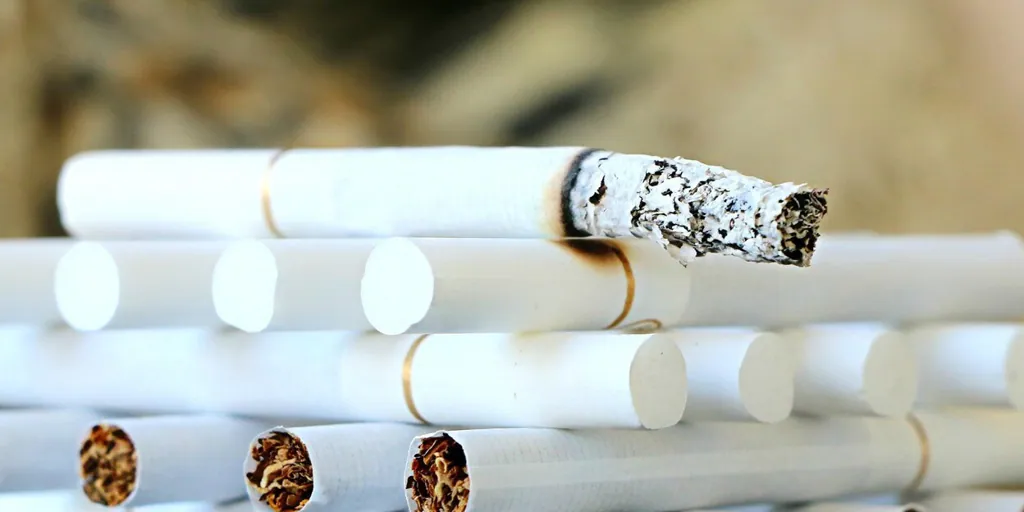Banning youth smoking would prevent more than 1 million deaths from lung cancer

What if we could protect everyone born on Earth between 2006 and 2010 from the interests of the tobacco industry so that they would never start smoking? Banning tobacco sales to new generations could prevent 1.2 million lung cancer deaths worldwide, according to a study published in The Lancet Public Health. The study, conducted by experts from the University of Santiago de Compostela and the International Agency for Research on Cancer (IARC), shows that creating a tobacco-free generation could have a profound impact on public health.
The simulation study—the first of its kind—projects that banning the purchase of cigarettes and tobacco products for those born between 2006 and 2010 would reduce nearly half of future lung cancer deaths in men (45.8%) and approximately by one third in women (30.9). %) within this cohort. This ban, if implemented, could prevent almost two-thirds (65.1%) of deaths in low- and middle-income countries (LMIC) and 61.1% of deaths in high-income countries.
“Lung cancer continues to be one of the leading causes of death worldwide, and two thirds of these deaths are related to smoking, a preventable risk factor,” points out Julia Rey Brandaris from the University of Santiago de Compostela. “Creating a tobacco-free generation could save many lives and reduce the burden on health systems, which currently face enormous challenges in addressing smoking-related problems.”
But according to this model, the impact of these policies will not be uniform across the world.
For men, the largest number of preventable deaths will occur in upper-middle-income countries, especially in Central and Eastern Europe, where up to 74.3% of deaths could be avoided. Among women, the largest effect will be seen in high-income countries, with a reduction of 77.7% in Western Europe.
This type of innovative legislation could be a game-changing change in reducing lung cancer deaths in the long term.
IARC’s Isabelle Surjomataram highlights the importance of this approach in low- and middle-income countries where smoking is still widespread and the youth population is growing. “Smoking cessation in these regions could save many more lives, given the demographic context and high levels of tobacco consumption,” he said.
Although the study presents promising results, the authors warn of potential difficulties in implementing these policies.
black market
The existence of a black market for tobacco products and non-compliance with the ban pose risks that could reduce the effectiveness of measures. Additionally, lack of data in some regions limited the study’s projections to 82 countries, and factors such as e-cigarette use were not taken into account.
At the moment, No country bans tobacco sales to new generationsalthough New Zealand tried to introduce a similar law for those born after 2009, which was recently repealed. This type of innovative legislation could be a game-changing change in reducing long-term mortality from lung cancer.
Ultimately, the study suggests that global policies to create a tobacco-free generation could have a transformative impact on global public health, preventing a significant proportion of lung cancer deaths and reducing the burden that smoking places on health care systems.
Although lung cancer is not the only disease caused by the use of tobacco and nicotine products, says Josep Maria Suelvez, head of the Service for Smoking and Injury Prevention at the Catalan Public Health Agency, the results of this study help to understand why smoking is still one of the main preventable causes of poverty , suffering and loss of health worldwide, causing the death of eight million people every year.
Over the course of the 21st century, recalls this expert from the National Committee on Smoking Prevention, the World Health Organization and many governments have begun to promote tobacco prevention and control policies, which are bearing fruit in some countries, the most developed of which are beginning to consider limiting access to tobacco to persons born after a certain date.
In Spain, most of these measures are necessary and must be urgently implemented.
“Imagine a new phase of public health policy aimed at achieving the first tobacco-free generations – what is known as End of the game– This is not a chimera, and one cannot rely solely on the effectiveness of a ban on the sale of tobacco to persons born after a certain date; rather, it requires continued promotion of other measures that have already been proven to be effective, such as raising tobacco prices. tobacco products, the introduction of plain packaging, the expansion of smoke-free areas, or the regulation of new tobacco and nicotine products through which multinational tobacco companies seek to attract new drug users in adolescence. – notes the scientific media center Suelves.
In Spain, he concludes, “where tobacco is responsible for more than 50,000 deaths annually, most of these measures are necessary and must be urgently implemented, as demanded by the scientific community and as announced by government agencies.”
